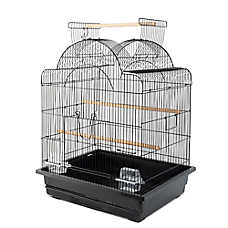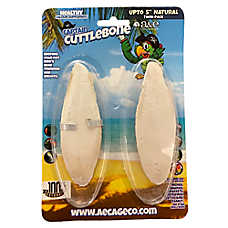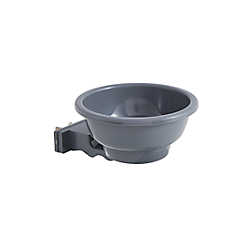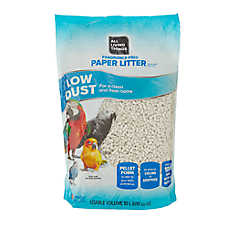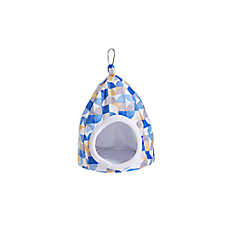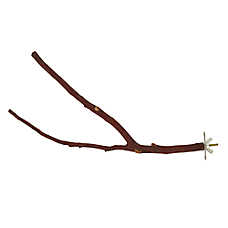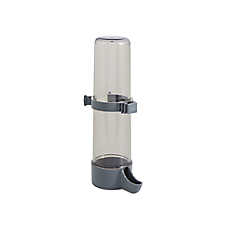Cockatiel Care Guide
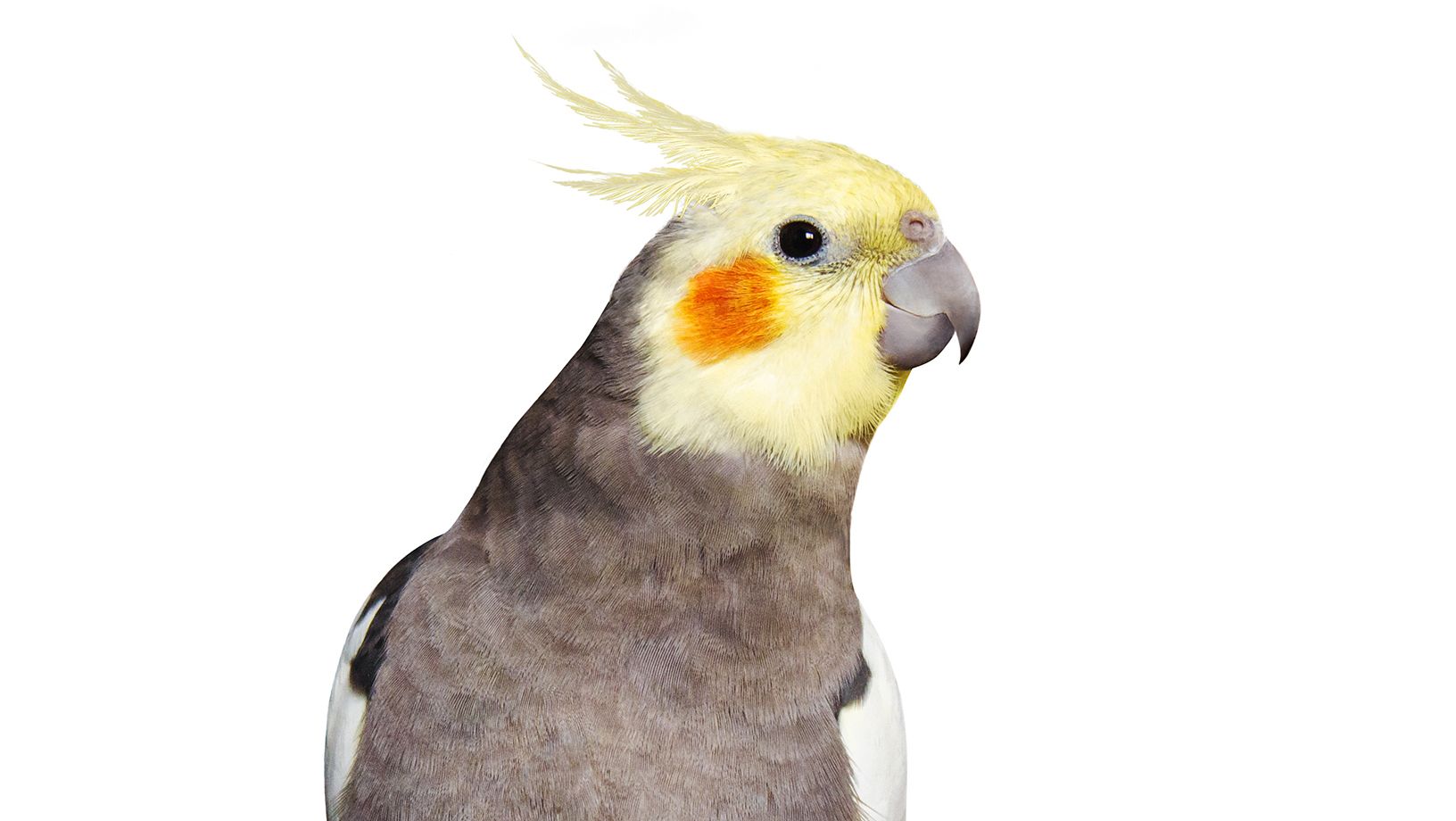
In this Article
Charismatic Cockatiels!
Cockatiels are a smaller bird that comes from Australia. These unique birds are actually small parrots, but generally aren’t quite as boisterous as some of their larger parrot cousins. While they still are vocal, cockatiels are much more likely to whistle than they are to screech. Cockatiels, especially males, are known to whistle lots of different melodies and have been known to learn new “songs” from the radio, tv, or even an original song you hum just for them! . While some cockatiels can learn to “speak,” it is more common for them to learn different songs to whistle and may even start mimicking songs they hear a lot like tv theme songs or music from your favorite playlist.
Cockatiels species profile
Size: Cockatiels grow up to 12" (15cm-18 cm) from head to end of tail.
Lifespan: On average, cockatiels live 15-20yrs
Temperament: Cockatiels are social birds that can live happily as a single bird or with others. Individual birds will sometimes choose a “favorite” person or people, but generally do well with families. Interactive, but not as cuddly as some other birds, they might prefer to hang out on top of your head or be within arm’s reach, as opposed to perching on shoulders or on your hand for very long.
Behavior: Cockatiels are social birds and consider their humans as part of their flock. They need daily interaction with their humans, and ideally like to be in a “family” area where they can be part of the flock. They can be vocal and make a variety of different noises, ranging from whistling and chirping when happy, to hissing and screeching when upset. Despite not being super snuggly, cockatiels usually like gentle head/neck scratches from people they trust but may be hesitant of strangers.
Setting up your Cockatiel habitat!
Cockatiels need a spacious, enriching, and low-stress enclosure that supports their social nature and desire to climb, play, and observe.
Enclosure size and placement
- Minimum size: 20” x 20” x 30”
- Recommended size: 27” x 24” x 30” or larger
- If you’re housing more than one bird, increase the enclosure size accordingly
- Place the cage at or below eye level, away from:
- Kitchens and cooking fumes (especially non-stick cookware)
- Smoke, strong odors, and drafts
- Direct sunlight and open windows
- Cover the cage at night to help your bird feel secure
Enrichment and accessories
- Provide at least three toys to encourage activity and mental stimulation
- Rotate toys regularly to keep your bird engaged
- Use puzzles, chewables, and foraging items to support natural behaviors
- Place a cuttlebone in the enclosure to support beak and bone health
- Include at least two perches of varying thickness and height to support foot health
- Add a ladder perch for extra climbing opportunities
- Avoid placing perches directly above food or water bowls to prevent contamination
- Add a T-stand or playpen so your bird can safely play outside the cage (indoors only)
- Use a liner at the bottom of the habitat and replace as needed to maintain cleanliness. Cage should be spot cleaned daily, and fully cleaned weekly.
Bathing and water
- Offer a birdbath or shallow dish for splashing and bathing 2-3 times a week.
- Alternatively, if your bird prefers showers to baths, gently mist your cockatiel with warm water 2-3 times a week
- Provide clean, fresh water for drinking in a bowl or bird water bottle at all times
Cockatiel Care and Feeding
Pellet-seed blend: This is your bird’s primary source of food and nutrition. Remove old food and refill with fresh food daily. Keep the bowl about ¾ full so your bird can eat whenever they’re hungry.
Fresh veggies and fruit: Offer your bird leafy green vegetables, fruits and grains every other day to help provide a well-rounded and interesting diet to keep your bird healthy.
Treats: Honey sticks and millet spray may be offered as treats. Offer treats once or twice a month in limited quantity to help prevent obesity
Water: Provide clean, fresh water for your bird at all times either in a water bowl or via a bird water bottle.
Never feed your bird chocolate, sugar, fried foods, avocado, or human junk food. These foods can make your bird very sick.
[When to see a vet]
In addition to regularly scheduled appointments, contact your avian veterinarian if you notice the following signs:
- long periods sitting at the bottom of the enclosure
- decreased appetite or weight loss
- less activity and grooming
- feathers fluffed for long periods of time
- sneezing; discharge from eyes, nose or mouth
- runny droppings for more than two days
- constantly plucking feathers or feathers are falling out
- beak over gown/ not closing normally
Go to “find a vet” on AAV.org for help finding an avian veterinarian in your area.
SHOPPING CHECKLIST
- Cage habitat
- Minimum size 20”x 20” x 30"
- Recommended size 27”x 24”x 30” or larger
- fortified cockatiel pellet diet
- seeds, fruits and veggies can be used in addition for treats or enrichment to chew on
- food bowls
- water bottle and/or bowl
- at least two perches (each a different thickness and height)
- A misting spray bottle and/or bird bath (for bathing)
- Ladder perch (additional to 2 other perches)
- toys
- habitat liner
- habitat cover (for nighttime)
- cuttlebone
Ready to learn more? This guide is a great starting place, but we encourage you to do more research on the individual species that you are keeping so that you can be as successful as possible!
FAQs
Can cockatiels talk?
Cockatiels can sometimes mimic words, but they’re much more likely to whistle than talk. Males are generally more vocal and may learn to whistle tunes they hear often, like phone ringtones or theme songs.
Cockatiels can sometimes mimic words, but they’re much more likely to whistle than talk. Males are generally more vocal and may learn to whistle tunes they hear often, like phone ringtones or theme songs.
Do cockatiels need a companion?
Cockatiels can thrive alone with daily human interaction, but they also enjoy the company of other cockatiels. If you choose to have more than one, be sure the cage is large enough and introduce them slowly to avoid territorial behavior.
Cockatiels can thrive alone with daily human interaction, but they also enjoy the company of other cockatiels. If you choose to have more than one, be sure the cage is large enough and introduce them slowly to avoid territorial behavior.
How often should I let my cockatiel out of the cage?
Ideally, your cockatiel should have supervised out-of-cage time every day. This gives them space to stretch their wings, explore, and bond with you. Be sure the area is bird-proofed before letting them roam.
Ideally, your cockatiel should have supervised out-of-cage time every day. This gives them space to stretch their wings, explore, and bond with you. Be sure the area is bird-proofed before letting them roam.
What should I do if my cockatiel stops singing?
A sudden change in vocal behavior may be a sign of stress or illness. Check for other symptoms like fluffed feathers, reduced appetite, or inactivity. If you're concerned, consult an avian veterinarian.
A sudden change in vocal behavior may be a sign of stress or illness. Check for other symptoms like fluffed feathers, reduced appetite, or inactivity. If you're concerned, consult an avian veterinarian.
Why is my cockatiel bobbing its head or fluffing its feathers?
Head bobbing is often a sign of excitement or a way to get your attention. Fluffing feathers can mean your bird is relaxed, or trying to regulate body temperature. If they remain fluffed for long periods or act lethargic, contact a vet.
Head bobbing is often a sign of excitement or a way to get your attention. Fluffing feathers can mean your bird is relaxed, or trying to regulate body temperature. If they remain fluffed for long periods or act lethargic, contact a vet.

